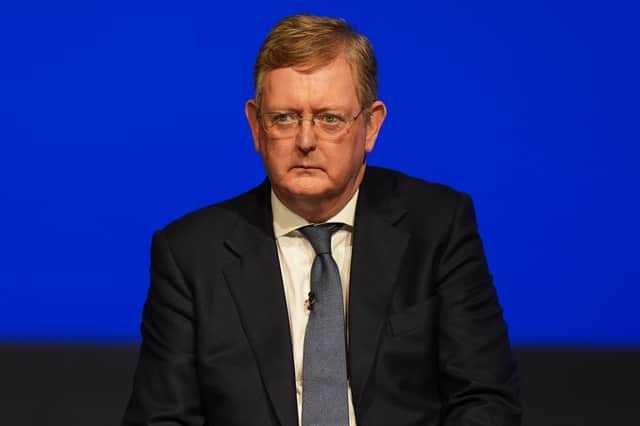Owen Polley: Northern Ireland is not a ‘hybrid’ state and shouldn’t be treated as one


That way of thinking ignores the role that everyday trade links and social interactions play in binding together a nation state, and, if they are changed, reshaping political allegiances. It also disregards the High Court judgement that found explicitly that the protocol amended the UK’s constitution and stated that the laws required to enact it ‘subjugated’ critical parts of the Act of Union.
Most of the time, it is nationalists and constitutional agnostics who make these arguments, effectively telling unionists what is in their best interests. They may or may not intend them honestly, but you don’t have to look far to find the same people advocating other innovations that would either abolish or dilute the Union, buoyed up by their belief that Brexit ‘changes everything’.
Advertisement
Hide AdAdvertisement
Hide AdRecently for example, a report from Sinn Fein’s European parliamentary group, which controversially bore the logo of Queen’s University, was launched at the European parliament in Brussels. The document called upon the EU Council to become an active advocate of “Irish unity”, which is to say that it asked the bloc to champion the break-up of a neighbouring country and geo-political partner.
The decision-makers in Brussels are unlikely to take such an openly hostile approach to the UK, particularly because they represent a number of countries that struggle with their own separatist movements.
It is revealing, though, that nationalists felt emboldened to ask. It rather undermined the idea that the EU acted as a neutral, honest broker on Northern Ireland, whose concerns were centred on the peace process, throughout the Brexit negotiations.
The threat that Northern Ireland will be abolished, and that we will be forced into a 32 county all-Ireland republic, is still unlikely in the foreseeable future. The greater risk is that the Union, and the Belfast Agreement, will be gradually eroded in response to the demands of nationalists and others.
Advertisement
Hide AdAdvertisement
Hide AdThe latest example is the idea that, in the absence of an executive at Stormont, Westminster should grant Dublin ‘joint authority’ over Northern Ireland’s internal affairs. This potentially incendiary policy is backed, according to a recent poll, by most nationalists, while Alliance and Green voters support the vague suggestion that there should be some ‘consultative role’ for the Republic’s government.
The Belfast Agreement specifically excluded Dublin from having a say in Northern Ireland’s internal affairs, but that did not prevent the SDLP leader, Colum Eastwood, from claiming that “an expanded role for the Irish government in running this place” would be “entirely in keeping with the spirit of the Good Friday Agreement”.
The spirit of the agreement, you will remember, is seemingly contained in mysterious, unwritten annexes that are only accessible to northern nationalists and politicians in Dublin.
In another comment that let slip the way that the Northern Ireland protocol is really regarded by the Union’s opponents, Mr Eastwood also said that ‘joint authority’ would “recognise the changing relationships we are currently experiencing on these islands”.
Advertisement
Hide AdAdvertisement
Hide AdThe notion that the agreement made Northern Ireland a ‘hybrid’ state - something between a full part of the UK and a full part of the Republic - has sometimes been put forward by nationalists and by liberals who see the province as a ‘place apart’. It’s a claim that has no legal basis.
The NIO minister, Lord Caine, addressed this fallacy in a post on Twitter. “Inconvenient facts for some,” he wrote, “(The agreement) provides for two constitutional options for Northern Ireland: it is either fully part of the UK or fully part of a United Ireland. There is no third option… NI is not some kind of hybrid state.”
This is a fact that the Alliance Party, for example, with its a la carte approach to national sovereignty, would like to ignore.
The biggest danger to the Union is not, in fact, a demographic swing toward nationalism, which the census results did not suggest, despite commentary to the contrary. Rather, it is the growing political influence of liberals and others who see the nation state as outdated, or even regressive. They have no qualms about watering down Northern Ireland’s place in the Union to preserve its links with the EU or to meet the demands of nationalists, even if they have no active preference for an all-Ireland set-up.
Advertisement
Hide AdAdvertisement
Hide AdAs Lord Caine pointed out, there is no provision for a ‘third way’ in the Belfast Agreement, but the claims people make about that document can be at least as influential as its actual content, as we have seen repeatedly. That is one of the reasons that we have the protocol, and the key reason why the government ruled out putting a trade border where an international frontier actually exists, between Northern Ireland and the Republic.
Parties who see this province as a ‘place apart’, and have few issues with treating this place as if it were a constitutional hybrid, hold the balance of power between unionism and nationalism. That’s a perilous situation for unionists, who must continue to draw people’s attention back to the actual, as opposed to the imagined, content of the Belfast Agreement.